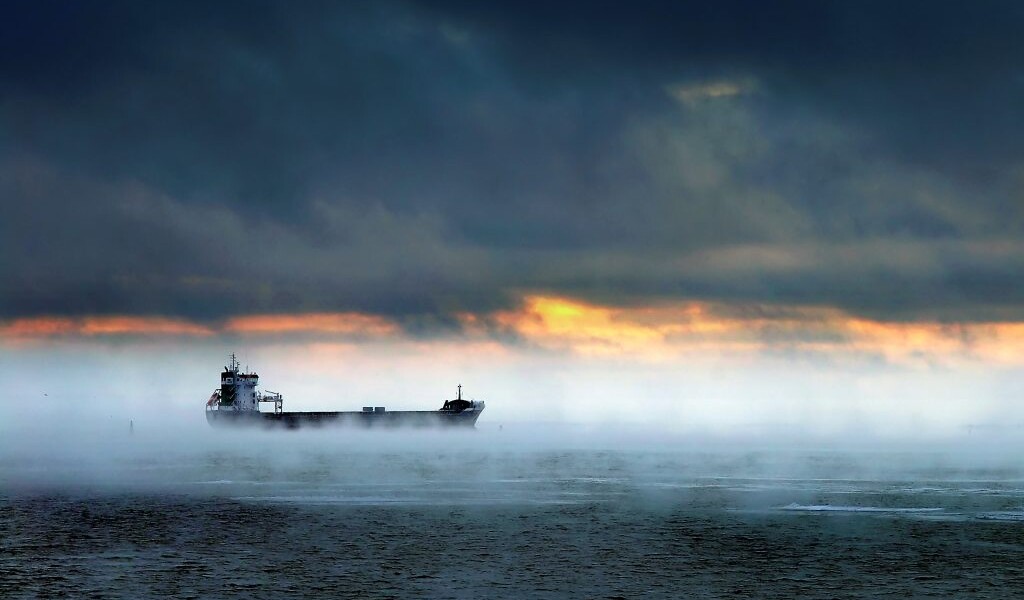WATERWAYS project produces information and recommendations to support sustainable use of maritime routes

20.1.2025 | What is sustainable and resilient use of the Baltic Sea shipping lanes and how can it best be promoted under the current circumstances?
To answer these questions, WATERWAYS, a strategic research project that started in December 2024, aims to balance risks and opportunities and develop sustainable pathways for the future through the collaboration of a multidisciplinary team of researchers and stakeholders.
The project brings together experts in information technology, marine engineering, environmental sciences and maritime law from leading Finnish universities and research institutes in the field, including the Kotka-based Merikotka Research Centre for Maritime Safety and Transport.
The aim is to provide new perspectives, knowledge and tools to support the sustainable use of maritime routes, benefiting both society and the scientific community.
Sea routes in the midst of change
The Baltic Sea is a vital transport route for Finland, supporting national prosperity, security of supply and sustainable development goals. However, heavy vessel traffic is also one of the reasons for the deterioration of the sea’s ecological status.
The use of marine areas is increasing worldwide – for transport, energy and food production, tourism and recreation. At the same time, there is a growing awareness of the vulnerability of the oceans and a desire to increase the proportion of marine areas that need to be protected or restored from the impacts of human activities. This creates competition for marine space between different sectors and environmental protection needs.
In the Baltic Sea, there are a number of current developments and challenges. The geopolitical situation affects the security of waterways, and Russian trade sanctions have altered traffic flows, creating for example a “shadow fleet” with risky vessels. Climate change is destabilising Baltic Sea ecosystems and increasing the need for effective protection and restoration measures. At the same time, changes in weather conditions will challenge the operation and planning of maritime transport.
The green transition to slow climate change will bring new fuels and offshore wind power, but also new emissions and risks that need to be carefully assessed and managed. As oil transport declines, the impact and safety of substitute fuel transport will become an issue.
Balancing the risks and opportunities of exploiting the Baltic Sea’s maritime routes in an ever-changing environment is challenging. It is therefore timely to reflect on the sustainable and resilient use and development of maritime routes in this context. What does it require of us and how can we support it?
WATERWAYS: Seaways as a source of sustainable prosperity and security
Launched in December 2024, the WATERWAYS project, funded by the Strategic Research Council, will focus on promoting sustainable use and development of the Baltic Sea’s maritime routes. The aim is to enhance their positive impacts on well-being and safety and to reduce environmental pressures. The project will provide new tools and recommendations to support strategic planning and decision-making by addressing the issue from ecological, social, technological and legal perspectives.
The idea for the project was born in autumn 2023, when Merikotka professors Mashrura Musharraf (Aalto University), Sakari Kuikka (University of Helsinki) and Osiris Valdez Banda (Aalto University) and Merikotka Research Director Annukka Lehikoinen met to discuss opportunities for cooperation under the new theme of Water as an element of well-being, security and peace. They were soon joined by Jukka-Pekka Jalkanen, an expert in emission modelling at the Finnish Meteorological Institute, and Henrik Ringbom, Professor of Maritime Law at Åbo Akademi University.
The team refined the project plan in dialogue with ministries and agencies, deepening their understanding of the challenges and data needs of maritime transport in the Baltic Sea. WATERWAYS aims to find solutions to manage the risks and environmental impacts of maritime activities and to enhance the positive impact of maritime transport on society.
The objectives will be achieved by:
- Enhancing monitoring: improving the capacity to monitor and analyse both legal and illegal activities in maritime areas.
- Assessing environmental pressures: developing the capacity to assess the pressures caused by shipping and boating.
- Supporting safe coexistence: Designing solutions to reconcile different maritime activities.
- Developing preparedness: Strengthening the capacity to prevent and manage marine environmental damage.
Interacting with stakeholders – working together for more sustainable solutions
In the WATERWAYS project, the role of the Maritime Safety and Transport Research Association extends beyond research to coordinating social interaction. The Strategic Research Council projects place particular emphasis on stakeholder involvement and the active role of researchers in societal dialogue.
It is hoped that key stakeholders will participate in the project in a variety of ways: as knowledge producers, co-developers, evaluators of results, test users and commentators. The methods of interaction cover a wide range: from regular meetings and email communication to in-depth research-based interviews, surveys, workshops and events. This brings together the project consortium, stakeholders and external experts to build common understanding and solutions.
The main objectives of the interaction are twofold. First, to ensure that the information produced by the project is relevant, timely and easily accessible to stakeholders. Secondly, to create opportunities for co-production of knowledge, co-interpretation of research results and design of sustainable solutions for the future.
Preparations for WATERWAYS are already well underway. In early 2025, the project website will be launched and an advisory expert group will be set up to which stakeholders will be invited. A kick-off seminar in spring will bring together researchers and stakeholders to discuss and build collaboration, the results of which will feed into both the research and the interaction activities of the project.
Up-to-date WATERWAYS news and project results will be actively communicated on the Merikotka Research Center LinkedIn channel – so now is a good time to join its growing following!